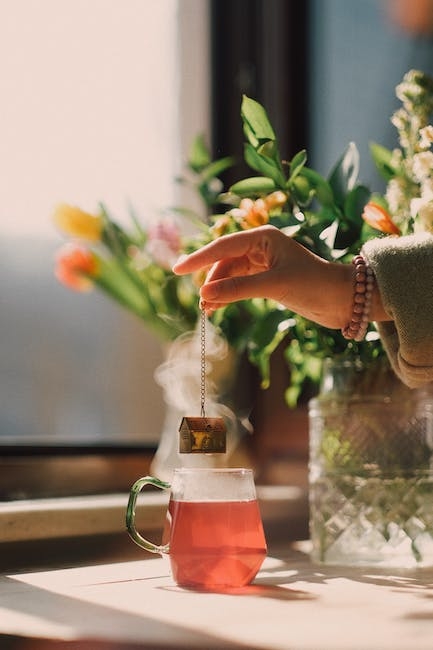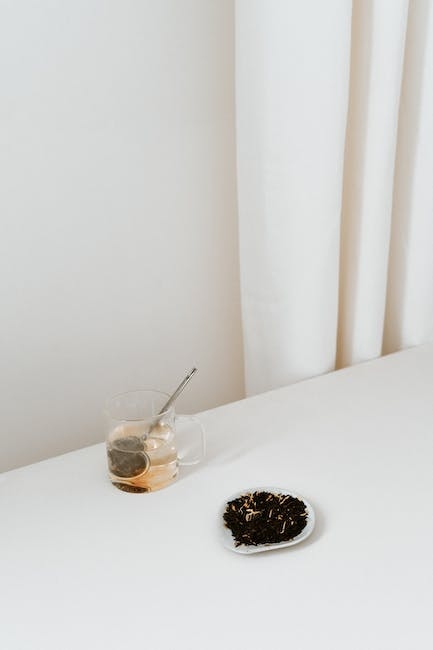Introduction to Jasmine Tea Brewing Temperature
Welcome to our blog for tea lovers! In this article, we will be exploring the fascinating world of jasmine tea and its brewing temperature. Jasmine tea is a fragrant and delicate tea that is made by combining green tea leaves with jasmine flowers. The resulting brew is not only delightful to the senses but also offers numerous health benefits.
One crucial factor that greatly influences the taste and aroma of jasmine tea is the brewing temperature. The temperature at which you steep the tea leaves can make a significant difference in how the flavors and essential oils are released. Therefore, understanding the optimal brewing temperature for jasmine tea is crucial if you want to experience its true flavors and benefits.
Factors Affecting Jasmine Tea Brewing Temperature
Several factors can influence the brewing temperature for jasmine tea. Understanding these factors will help you make informed decisions about how to brew your tea for the best possible flavors.
1. Type of tea: The type of tea leaves used in jasmine tea can vary. Often, jasmine tea is made using green tea leaves, but sometimes white or black tea leaves may also be used. Different types of tea leaves require different brewing temperatures to bring out their unique flavors and aromas.
2. Tea quality: The quality of the jasmine tea leaves can also impact the brewing temperature. Higher quality tea leaves may require lower temperatures to prevent their delicate flavors from becoming bitter or astringent.
3. Personal preference: Each tea lover may have their own unique preference when it comes to the taste and strength of their jasmine tea. Some might enjoy a milder brew, while others prefer a stronger, more robust flavor profile. This will influence the brewing temperature chosen to achieve their desired taste.
4. Brewing method: The brewing method you use can also affect the brewing temperature. Some people prefer to use a traditional teapot, while others may opt for a tea infuser or a gaiwan. Each method may require slightly different temperatures to extract the best flavors from the tea leaves.
By taking these factors into consideration, you can adjust your brewing temperature accordingly to optimize the flavors and aroma in your cup of jasmine tea.
Optimal Jasmine Tea Brewing Temperature
Now that we understand the factors that can affect the brewing temperature of jasmine tea, let’s explore the optimal temperature range for brewing this delightful beverage.
Generally, jasmine tea is best brewed at a temperature ranging from 160°F (71°C) to 180°F (82°C). This temperature range allows for the delicate jasmine flavors to mingle with the tea leaves and creates a well-balanced brew.
If you prefer a milder and lighter tasting jasmine tea, aim for a lower brewing temperature of around 160°F (71°C). This lower temperature helps to preserve the delicate floral notes and prevents the tea from becoming overly bitter.

On the other hand, if you enjoy a stronger and more robust jasmine tea, consider brewing it at a slightly higher temperature, around 180°F (82°C). This higher temperature will extract more of the tea leaves’ flavors, resulting in a richer and more full-bodied cup of tea.
It’s important to note that these temperature ranges are general guidelines, and personal preference should always be taken into account. Feel free to experiment with different temperatures within this range to find your perfect cup of jasmine tea.
Next, let’s take a look at some common mistakes to avoid when it comes to jasmine tea brewing temperature.
Common Mistakes in Jasmine Tea Brewing Temperature
When it comes to brewing jasmine tea, there are a few common mistakes that people often make regarding the temperature. Avoiding these mistakes will help you achieve the best possible flavors in your cup of tea.
1. Boiling water: One of the most common mistakes is using boiling water to brew jasmine tea. Boiling water, which typically reaches a temperature of 212°F (100°C), can scorch the delicate tea leaves and result in a bitter or overly strong brew. It’s important to let the water cool to the appropriate temperature range before steeping the tea leaves.
2. Insufficient brewing time: Another mistake is not allowing the tea leaves enough time to steep properly. Jasmine tea requires a longer steeping time compared to other types of tea. If you don’t steep the tea for enough time, you may not fully extract the flavors and aromas from the leaves.
3. Inconsistent water temperature: Consistency is key when it comes to brewing jasmine tea. Fluctuating water temperatures can affect the overall taste and aroma of the tea. It’s important to monitor the water temperature throughout the brewing process and make adjustments if necessary.
4. Using water that’s too cool: While boiling water can be detrimental to jasmine tea, using water that’s too cool may result in a weak and lackluster brew. It’s essential to ensure that the water temperature is within the optimal range to achieve the desired flavors.
By avoiding these common mistakes, you can enhance your jasmine tea brewing experience and enjoy a cup of tea that’s filled with the delightful flavors and aromas of jasmine.
Now that we’ve covered the common mistakes, let’s move on to experimenting with jasmine tea brewing temperature to discover new and exciting flavors.
Experimenting with Jasmine Tea Brewing Temperature
One of the joys of being a tea lover is the ability to experiment and discover new flavor profiles. The brewing temperature of jasmine tea offers an excellent opportunity for experimentation.
Here are a few ways to experiment with jasmine tea brewing temperature:
- Temperature variations: Start by trying different brewing temperatures within the optimal range discussed earlier. Brew one cup at 160°F (71°C) for a lighter taste and another cup at 180°F (82°C) for a stronger flavor. Compare the two and see which one you prefer.
- Temperature steeping times: Experiment not only with different temperatures but also with varying steeping times. For example, you could try brewing jasmine tea at 160°F (71°C) for a shorter duration, such as 2 minutes, and then at the same temperature but for a longer duration, such as 4 minutes. Notice how the flavors evolve and develop based on the steeping time.
- Temperature adjustments throughout the steep: Another interesting way to experiment is by adjusting the temperature during the steeping process. You could start with a lower temperature, such as 160°F (71°C), and gradually increase it every minute or so. This can result in a more layered and dynamic flavor profile.
- Comparative tastings: To further explore the impact of temperature, you can conduct comparative tastings with other tea enthusiasts. Brew jasmine tea at different temperatures and compare notes on the flavors and aromas experienced. This can be a fun and insightful way to discover new aspects of jasmine tea.
Remember, the art of tea brewing is subjective, and everyone’s preferences may vary. The key is to have fun and enjoy the process of experimentation. By exploring different brewing temperatures, you can unlock a world of unique flavors and expand your appreciation for jasmine tea.
In conclusion, understanding the importance of jasmine tea brewing temperature, avoiding common mistakes, and embracing experimentation can elevate your tea-drinking experience. So go ahead, brew a cup of jasmine tea, and savor the delightful flavors that this aromatic beverage has to offer.


Leave a Reply